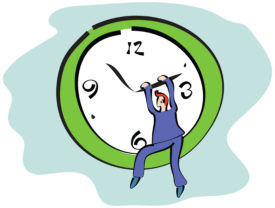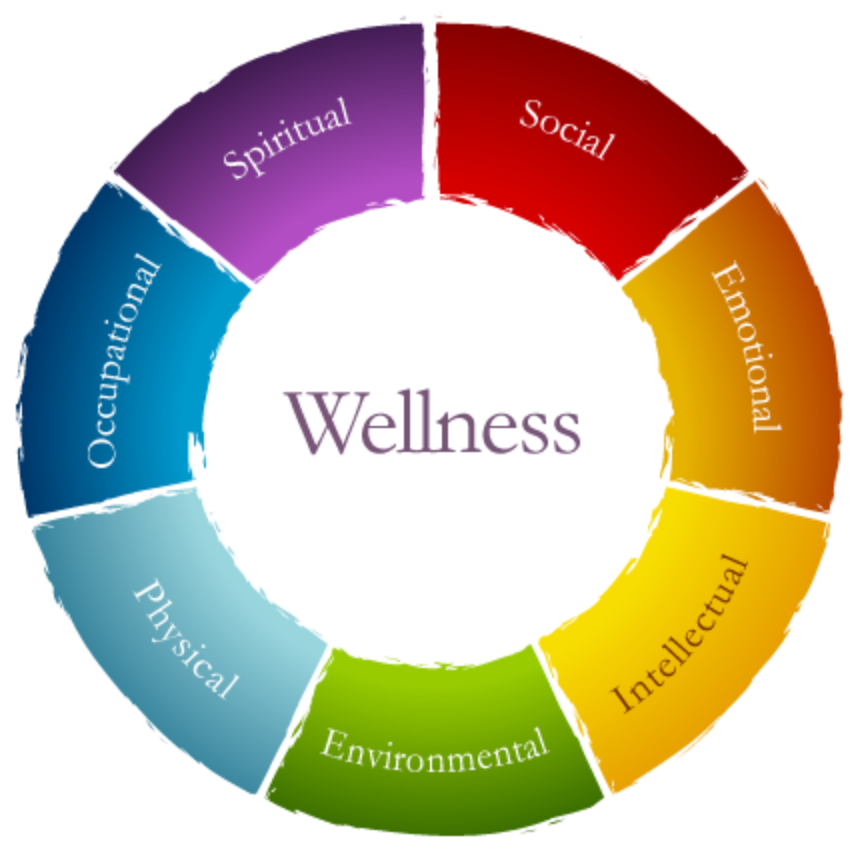Preventing a "Zoomed Out" Life: A Call for Flexing the Traditional 9-5 During Social Distancing
- Dr. Angela
- May 3, 2020
- 7 min read
COVID-19 has introduced a new phrase into our daily language called “Zoomed out.” It’s a reference to the web application and software called Zoom that has stood out as one of the major video conferencing apps for employees and their companies and organizations in addition to individuals and families alike. Zoom affords individuals the ability to connect across the globe in pair or group form through the use of web cameras and screens on computers, tablets and phones across all platforms in an easy and free (up to 40 minutes) way. Its ease of use continues to make it the go to for folks looking to setup an online meeting, happy hour, game night, or family dinner at a distance. Online video conferencing is not a new concept at all but never has there been a time in our lives when the country has been told to stay home and work and live remotely and online. Online web conversations have become essential and in some cases required.
A primary struggle many of us have begun to learn is that our previous lives as they existed face-to-face do not translate perfectly to an online world. An 8-5 or 9-5 job on a screen is weird and long! Online learning lacks the social breaks to connect with friends or get a teacher's feedback immediately. Exercising with an instructor on a screen in your house isn't as motivating as sweating it out with a workout buddy next to you. And connection and social interaction through a 10-13 inch square (if you're lucky to have a laptop) with 10 people is tiny and can lack the real time connection of in person presence. And doing ALL of these things online and under a single roof is not something any of us can navigate without a feeling of being “Zoomed Out” by the days end which leads to many of us either not working at our top potential, or worse, withdrawing from social engagement or physical activity due to eye fatigue and sheer exhaustion.
I don’t believe we can continue to move through life in the same ways as before with the same expectations for work, productivity, and connection while social distancing and working and living online. There is no “back to normal” that folks seem to be waiting on. Even as the country begins to “open up” it is not "business as usual" and will not be for some time. The grief process is a forward one. It is not back. To truly move forward we have to shed and discard what used to work but no longer does to make room for what we need right now. And yes, it is hard and painful. Though I think it is what we all need to navigate the new normal. So, I want to propose some new guidelines for living this boundary-less, social distancing, quarantined new life. One that acknowledges acceptance of the the break in our normal (the old).
Below are some tips and suggestions I have discovered, some I am hoping to experiment with, as well as others I am encouraging others in larger workplaces to consider and try. Hopefully we can all figure out how to work, live, learn, and breathe life into ourselves (and not just our jobs or those on the other side of screens) as we move into a very unknown future.

Flexing the 9-5 for online workers
This first one might be a struggle for folks who lack autonomy in their job. But for those with flexibility, consider finding ways to flex the 9-5 (again this is really 8-5 for most as we don’t get paid for lunch anymore). For employers: please consider ways to make your employees' lives more flexible! Please sit with the the idea of larger breaks in your day. If you have to look at screen for your job, fatigue likely sets in after a couple hours. See what changes you can make around putting a two hour break in your day to have lunch, sit outside, and maybe talk with a loved one. If you are an employer consider ways to increase flexibility for your employees in this capacity. Research demonstrates that those employees that are entrusted to get the work done over being micromanaged are happier and more balanced which increase company productivity.
Adjusting the online meetings
In short, a 2-3 hour meeting in person does not translate to a 2-3 hour meeting online. Break it up and give folks stuff to read before and after on their own time when they can be more present (and hold them accountable). Most folks do not need to listen to someone else talk for 3 hours (and they aren’t listening after a while, they are playing solitaire or texting or doing other things on their screens). We all hit saturation eventually. If you MUST have a 3 hour meeting in an online space, make it engaging (but seriously you don’t need the 3 hour online meeting). If giving a training or webinar encourage folks to turn off their screens. When we are in a face-to-face meeting we are not staring at the presenting for hours. We are taking notes, looking at a wall to let our thoughts marinate, we are doodling. All of these things help us listen. The pressure to stay staring at a screen increases the likelihood that your employees will be Zoomed Out and will not connect with friends and loved ones at the end of the day. This will lead to burn out and this employee’s productivity will suffer.
Tech Sprints vs. Marathons
Schedule breaks in your day away from technology and stretch it out. It can seem enticing to “get it all done” but your eyes are tired. Take breaks in your day. You used to do this at your place of work or school. You had time between classes, walks to the copy machine or bathroom, lunch out of the office. Add these back in. Take a long lunch. Work hard for 45 minutes and get a ton done, then take a break. My prior self could schedule 3-4 face-to-face sessions in a row with little time between. But online that is hard to do this. I had to find a new rhythm. I do two in a row, then take an hour off. I go for a walk, work on a puzzle, have a conversation with someone in my house, stare into space. This allows my eyes to rest, my cortisol levels from praying the technology keeps working, to stabilize, and my heart to stay open throughout the day. And in the evening, I don’t binge watch shows. If I watch TV I'll choose a movie or 1-2 shows max. I take walks, listen to music, I play games. I'm saving some screen time to be able to socially connect and making sure when I am watching a show it's something that brings me joy. How much screen time are you saving to maintain your social connections?
Substitute Email and Phone for Video Conferences when Possible
For Employers: To follow up with the adjustment to online meetings, consider ways folks can call in (and actually help them feel permission to do this) or schedule a phone call in the first place. If you already have this flexibility, get on your tennis shoes and go walk and talk. At the minimum, take your phone call in front of a window if weather cold or raining or sitting outside and look at trees. For any communication I need to do that does not involve a screen, I get out of my office. Also, try email. Or, a newsletter. Or if no feedback is required create a post and ask people to read, then move on.
Get Outside More
That’s all. Take a break outside, eat lunch outside, walk outside (while practicing social distancing). The fresh air will do you good throughout the day.
Old School Games
I have been loving playing Nintendo Switch with my family both at home and at a distance. I also love the ways technology can be flexed to use Zoom and other online platforms (Check out Jackbox games!) But turning off the screens and playing some good old Gin Rummy, Monopoly, even Solitaire by yourself with actual cards and some music! Or grab yourself an online word search game or puzzle sheet (here are some good ones). Feeling smart- check on the NY Times Crossword puzzle online!
Same Rules Apply about Screens and Sleep Hygiene
I know everyone is sleeping more though many are reporting to be more tired. Grief is exhausting. While screen time rules are being flexed the one flex I urge everyone not to adjust is turning off screens an hour before bed. Electronics are stimulating and using them before bed can negatively impact you sleep. For me this is a STRUGGLE. One of my biggest losses has been the library. I don’t buy books, I rent them. I read them, consume them, then I’m done (unless it’s a textbook or a therapy book that I must keep and write in and put on my shelf to refer to clients). I have been using Audible but before bed I trust the no screen time rule and my sleep thanks me. My new find- neighborhood libraries. I have found a couple in my neck of the woods. Super cool. You can grab a book, and replace with one you don’t need. And when in doubt, can anyone re-read Harry Potter or Hunger Games too often.
That’s it, for now. I’m hopeful folks can find ways to make this new way of living work for you instead of waiting to be told. And employers I hope you can find ways to help your employees do the job you hired them to do with the flexibility they need right now to do it. We are going to need some stamina to get through the next few months and I hope you all can take good care of yourselves and loved ones.




Why Choose UNICCM? Learn at your own pace, from anywhere; real-world industry professionals with real-world experience; certifications that employers value and trust. Invest in your future today!
Your insights into telehealth counseling are invaluable! You've captured the challenges and triumphs beautifully. Your practical tips for managing screen time and embracing silence resonate deeply. It's amazing how flexibility, patience, and gratitude truly shape this transition. KiviCare could complement these learnings, providing a seamless, secure platform for practitioners and clients alike. T
For more details visit :https://kivicare.io/
I'm not saying that Meyer is trying to Mut 22 coins be fired to ensure the possibility of him being available to take the USC job although I'm suggesting that. Meyer will be coaching the Titans and the Titans, which means one of these two coaches will be humiliated for the second consecutive week.
Before we get to the predictions, let's remind everyone that you can view the week-long picks of every CBSSports.com NFL Expert by clicking here. But , you don't need to do that this week as there are other things to mmoexp madden 22 coins discuss now, like the reasons to sign up for the Pick Six newsletter here at CBSSports.com.